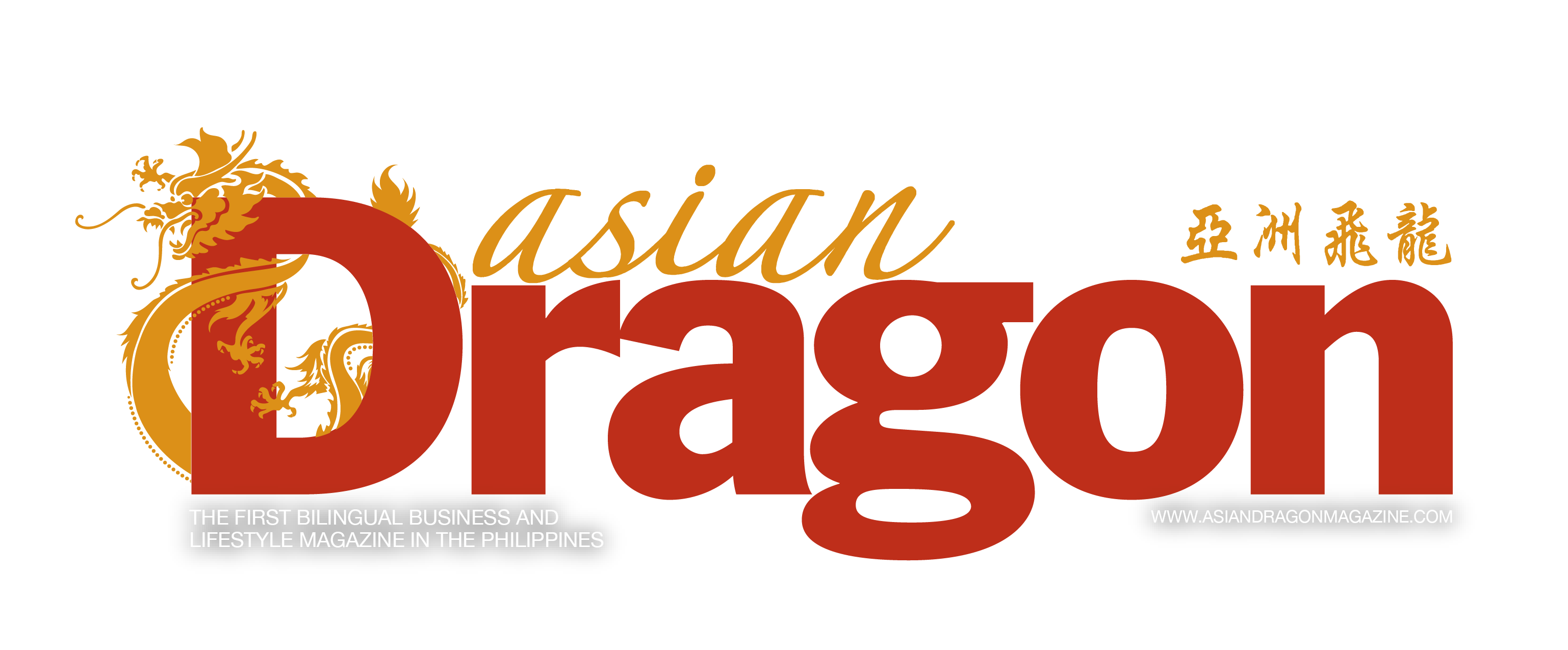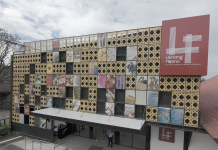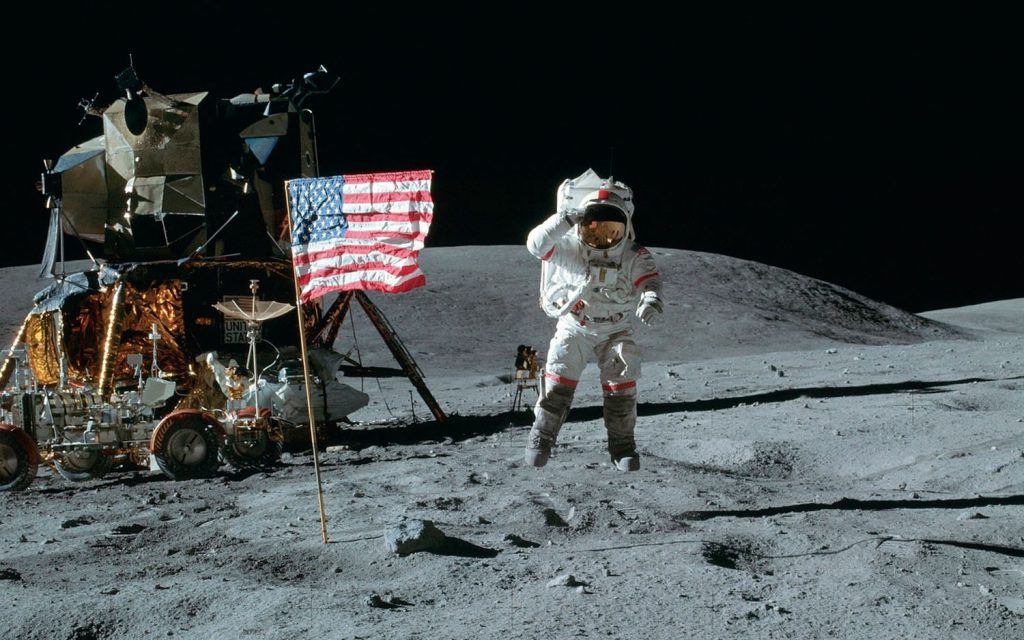
I believe we Filipinos deserve more effective political discourse. You might agree that the current level of political discussion has degenerated into name-calling, mudslinging, trading of insults, and attacks on personality, none of which advance or develop ideas. This is a pity, because we have an urgent political situation, and there are good ideas in circulation, as well as many enlightening perspectives. However, they get drowned out in political noise, of people calling each other “dilawan” or “Dutertards,” for example.
By “effective,” I do not mean “proper,” or even less, “politically correct.” Propriety has a certain value, but effectivity is more important. What I mean by “effective” is a discourse that addresses issues (not personalities), and moves them forward by adding new information and perspectives worthy of evaluation by all stakeholders. Ultimately, stakeholders should be guided by the discussion when they exercise their political power by voting, either for candidates in an election, or for one side of a question or another, in a referendum.
Perhaps the notion of an elevated political discourse is idealistic. Fine. But I refuse to accept that our national discourse, whether political, cultural, or whatever, should wallow in the mud. Our discourse shows what kind of people we are—especially to each other. Discourse is just words and ideas; it doesn’t take billions of pesos to fix, only improved consciousness and respect, and, above all, listening.
I also feel compelled to argue that this is not an elitist perspective. I refuse to accept that only rich, educated people are “allowed to be” intelligent, and that poor, less- or un-educated people are, perforce, assumed to be stupid. All opinions matter, but they have to be opinions. Certainly, education gives people certain advantages, but just because you are articulate does not make you right. Conversely, just because you are inarticulate does not make you wrong.
However, intelligence is, unfortunately, a necessary ingredient. If your main arguments consist of “eh di wow” and “alam mo pala lahat,” then that doesn’t pass the entrance exam. Statements like that are not discourse, they’re noise. They attack someone’s person, not their arguments. So, if you can’t add anything of value, just let others do the talking, and listen.
So here’s the main problem: post-modernism. I am pretty sure this is not what you thought I was going to say.
According to philosophical discussion, which occurs mostly on paper and in the academic realm, we have arrived at the “post-modern” era. It is very difficult to describe, because its principal feature is the absence of absolute truth, or even objective reality. In the context of post-modernism, many truths are possible, and none are intrinsically more valid than any of the others. Thus, ironically (and to me, comically), no two philosophers even seem to agree on what post-modernism is, exactly.
Take any (previously) absolute truth, like “The sun rises in the East and sets in the West.” Right away, any scientist will tell you, the sun doesn’t “do” anything at all in that situation; it just exists, where it is, in relation to the Earth. It is the Earth which rotates, which “causes” us to experience sunrise and sunset.
Another one might say, sunrise and sunset are irrelevant. The Earth rotates at 1,656 km/h (at least in reference to an imaginary fixed point in space, like the sun), so if you were in a vehicle that traveled at about that speed on or slightly above the surface of the earth, it would always be the same time, and the sun would remain fixed where it was in relation to you. So sunrise and sunset are completely relative, and it could be argued, do not exist out of necessity.
This ridiculous confusion all started when certain architects, artists, and designers, in the 1980s, started producing work that completely defied convention, or conventional ideas of beauty, utility, etc. Basically, their statement was, “Everything is relative to something else,” and that conventional ideas and assumptions only exist because of the particular conditions and factors which had given rise to the particular civilization or idea system which served as the context. I know, complicated, right? Just make this your takeaway: this all started with artists. Let’s now discuss Modern thought.
In the previous, Modern era, we had stuff like science and logical reasoning to determine (what we thought was) Absolute Truth and objective reality. Sherlock Holmes, for instance, was an exemplar of the modern man, discovering truth by employing scientific means to gather evidence, and using logical reasoning (mostly deduction) to reveal the truth, like refining ore by crushing it and removing everything that isn’t metal. Sherlock Holmes not only solved equations; he formulated them, by correctly identifying their elements from a universe of information.
The ultimate Modern project was probably sending humans to the moon in 1969. This involved a stupendous amount of human brainpower, mostly advanced mathematics, since, at the time, computer technology was in its infancy. In fact, in 1969, computers weren’t even purely digital; they still had many arguably mechanical elements (the interface and storage medium was, in many cases, punch cards, for example). Thus, there was a very real risk of catastrophic failure, because the computations could only be checked manually; exponential repetition and abstract iteration was not practical, given the limited amount of processing power. In effect, if you put all the math in the man-to-the-moon program together, it was the equivalent of one giant equation with only one possible outcome, and they had to hope it was right. But that was Modernism; it was all about Absolute Truth. It worked.
NASA was partly very smart, and partly very lucky. Today, science and technology have demonstrated to us that in almost any area of nature or human endeavor, many outcomes are possible, indeed, inevitable, from the same set of assumptions. The result obtained by any complex system will tend to be statistically, not absolutely determined.
Interestingly, there exists a small community of doubters, who believe that the entire Apollo Space Program was an elaborate hoax by the United States government to dupe the world into thinking that the United States was the most technologically advanced country in the world. Interestingly, this group emerged during—you guessed it—the post-modern era.
Let’s take another example, the Food Pyramid. This dietary guide was first published in Sweden in 1974, when the country was considered a modern socialist utopia, more or less. The idea was to show citizens the proportions of foods they should be eating, which notionally constituted a healthy diet.
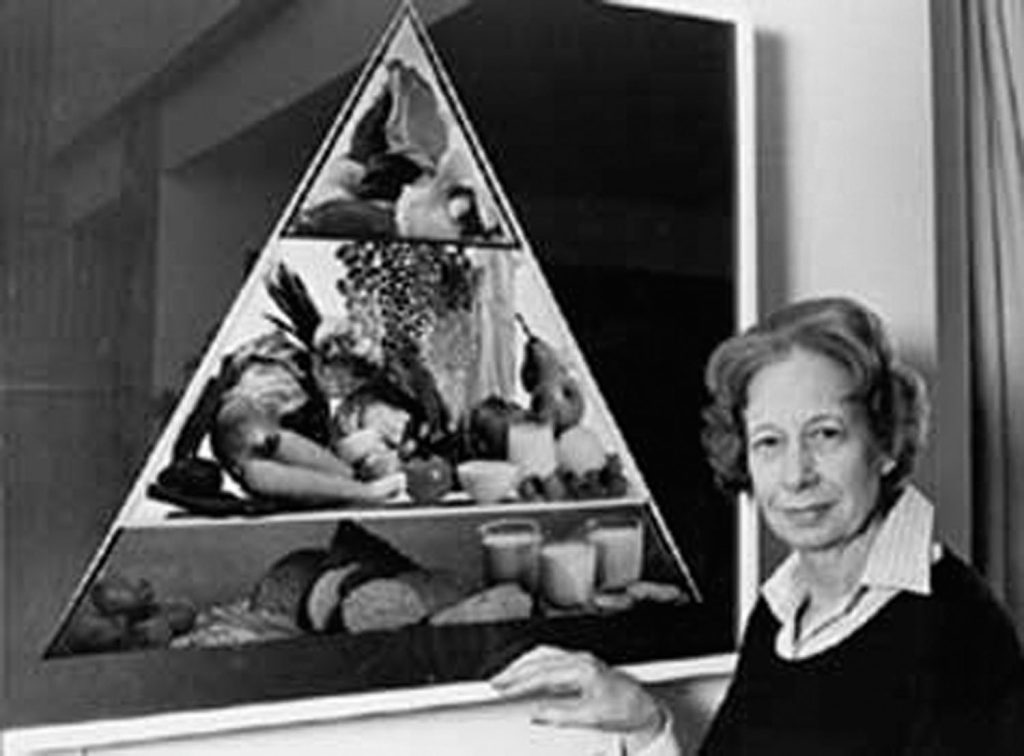
The base of the pyramid was made up of carbohydrates like bread, cereals and grains, potatoes, and milk, cheese, and other dairy products. The next layer, which you were supposed to eat about half as much of, was vegetables and fruit. The top layer, which you were supposed to eat half as much of again (in other words, about a fourth of the calories of the bottom carbohydrate layer) was proteins and oils and fats, thus, meat, poultry, fish, and eggs, but also including beans. Everyone copied this pyramid, notably the United Nations World Health Organization in 1989, then the United States, in 1992. It became as unquestionably true as the Bible.
Today, the Food Pyramid is criticized and derided as being fundamentally wrong. Science still can’t seem to agree on what people should be eating, and how much, but it is definitely not what the food pyramid says. For one thing, it has emerged that one reason the proportions of food were arranged that way in the original Swedish pyramid was not due to any sort of scientific research on diet, but to the relative prices of food in Sweden in 1974. They simply wanted people to afford it.
Carbs, which are by far the most affordable food, are now public enemy number one, and in many people’s minds, should be eaten the least of, not the most. The main reason for this is that carbohydrates turn into glucose in your blood far faster and more efficiently than any other food group. In a scenario where people actually needed instant energy in their daily lives, for example, to outrun charging velociraptors (I’m kidding, but you know what I mean), this would be a good thing. But with today’s sedentary lifestyles, too many carbohydrates will turn into sugar and simply make you fat. I’m not even going to start with the whole gluten thing.
Dairy, carbohydrates’ constant companion at the base of the pyramid, has been found to be quite bad for your health, in many cases. In fact, it is now emerging that the human body is really not designed to drink lots of milk after early childhood, and in fact should only really drink human milk to begin with. By the way, since farmers load their cows with hormones in order to stimulate milk production and increase live weight, if you drink lots of milk through to puberty and beyond, there is a chance you will grow really large boobs. I am not making this up. It is a side effect I am glad I, personally, do not suffer from— but which other people might enjoy.
Many Asians suffer from lactose intolerance and thus stop drinking milk (except maybe as a sweetener for coffee) by their adult years. In the West, dairy continues to be a major part of the diet, simply because it is so cheap. In the United States, people buy milk by the gallon. France has several hundred registered varieties of cheese, and more distinct varieties of butter in each region, than there are models of automobiles for sale in the Philippines. Dairy also includes ice cream, which must be really bad for you, because it tastes so good.
Essentially, dairy is a by-product of meat production. If you raise mammals for their meat, you’re going to end up with an ocean of milk, whether you want it or not. So they need to do something with it, which is why, for example, Australian and New Zealand dairy companies paid Filipino advertising agencies to convince the Filipino public that if they fed their babies reconstituted “milk” (and I use this in the loosest sense of the word) made from powdered formula, said babies would grow up to be smarter, more attractive, and better achievers than those fed on breast milk.
Not only is this an egregious lie (it is now, finally, prohibited by law to even imply it), but the exact opposite is true. If you feed babies formula, they are more likely to grow up stupid, ugly, and unmotivated than if you fed them breast milk. However, the damage is done, and today, less than 20 percent of all Filipino mothers even attempt to breastfeed their newborn babies, and less than 5 percent manage to breastfeed to a minimum of six months. The rest of the babies are simply given formula, and in my opinion, grew up so stupid, that they think Eat Bulaga and Vice Ganda are madly entertaining, and they voted for Duterte. To be clear, I’m joking. Of course. Nothing like absurd exaggeration to drive home a point.
Meat, and its close companion, fat, are enjoying the limelight (at least among non-vegetarians), not because it is particularly good for you, but mostly because all the bad things science told us about it turned out not to be true at all, or only partly true. Hence, the keto diet, the paleo diet, etc. One bad thing science used to tell us about meat is that it contains cholesterol, so if you eat too much meat, the cholesterol will build up in your arteries and veins, and eventually block them, so you will die of a heart attack. As it turns out, this is not even remotely true. Sure, meat contains a lot of cholesterol, but it doesn’t enter your bloodstream in exactly that form. Your body digests it and breaks it down into other stuff.
Now, they tell us that there’s “good” cholesterol and “bad” cholesterol, and the level of each in your body does not have a very strong correlation with what you eat. The French eat a much fattier diet than Americans, but have a far lower incidence of heart disease.
Vegetables are now considered the best thing for you to eat, whether you like them or not. Except that if you are vegetarian, or worse, vegan (no animal products at all), you risk developing a serious deficiency of vitamin B12 (cobalamin), which comes from meat, fish, eggs, and dairy. If you suffer from vitamin B12 deficiency, you can get weak and tired all the time, sometimes dizzy or breathless. You may, in the long term, suffer from nerve damage, which leads to loss of sensation in your extremities, and can affect your balance and mobility, putting you more at risk of falling and injuring yourself. Lack of B12 can blur your vision, and also make you moody. I’m going through this whole list of stuff for people who insist that veganism is the natural state, and that eating any form of animal life, including eggs, is unnatural.
So there you have it. The Food Pyramid, once an Absolute Truth, endorsed and preached by all governments and other authorities, has turned out to be a total crock, and is now practically upside down. Worse still, now, no one can agree on what you should actually eat. Although this is outside the scope of this article, I’ll just tell you my theory. For everything you eat that tastes really good, eat half the amount that you really want to. Then, eat twice the amount of something that either tastes bad, or is so bland it must be good for you. So, if you’re planning to have ice cream, your entire meal should consist of boiled kale with quinoa, tossed in artisanal soy milk ranch dressing. And if you really love all of that stuff, God bless you.
Now (finally, jeez, I mean, what time is it?), let’s talk about political discourse. Once upon a time, there was Absolute Truth in Philippine politics. This Absolute Truth was divided into two sides: Liberal or Nacionalista. Basically, one party would win, and rule for four years. They would spend the first year undoing everything the previous regime had accomplished (this was called “reform”), and the next three years essentially stealing what they could get away with. The net effect of this was to screw the country up so profoundly that in the next election, the other party would win, and then the cycle would repeat. I am not joking, and this is not an exaggeration.
Nevertheless, there was some form of Absolute Truth, however elusive it might have already been at the time. When someone said something in public, everyone at least agreed that it was said, and the range of interpretations as to what it meant was very narrow. There were about six major broadsheet newspapers, and they all had pretty much the same headline. Today, this is not the case.
Nowhere is this more obvious than in reactions to the pronouncements of our President, Rodrigo Roa Duterte. For example, during a speech he delivered in Davao on June 22, he said “Who is this stupid God?” (This was in the context of the idea of Original Sin, which Duterte himself brought up, and had no relevance to the event where he was.) He continued, “This son of a bitch (God) is then really stupid.”
A few days later, he said, “What I said was your God, is not my God, because your God is stupid.” He said his God “has a lot of common sense.” Then, on July 6, he told an audience at a science and technology conference in Davao City that he would resign as president if anyone could prove the existence of God.
The reactions varied. The Press Secretary, predictably, said that the President was entitled to his own opinion. Some commentators said he didn’t say or mean that at all. He was speaking in a mix of Visayan and English, so some insisted he was mistranslated. Others said he was not referring to the Christian God, but some other interpretation of “God.” Still others argued that he was simply commenting on the nature of deity, which is that we can’t understand divine will, and it seems illogical to him (assuming “logical” and “rational” are the opposite of “stupid.” Still others say he was taken out of context. This goes on and on.
In a previous era, this statement would have essentially the same interpretation: that the President is a) fundamentally opposed to the conventional idea of religion, whether organized or not, and b) batshit crazy, must be the Fentanyl. Why? Who asked him? What’s the point? What value does this add to any discussion anywhere?
Now, it’s all over the place. Whatever he actually said, the idea of it has actually become unimportant. If you review the coverage of the major foreign news agencies, the common theme is that Duterte alienated a whole bunch of Christians, in a majority-Christian nation, and he did this for no clear reason. There is no logic to the situation, and no agreement on what he meant. Welcome to the post-modern era.
The President’s pronouncements aside, our own political discourse has been characterized by polarization. This polarization is most manifest in widespread generalization. It is represented most by two terms: “dilawan” and “Dutertards.” In other words, instead of discussing an idea, people simply attack and insult the person who has stated the idea.
If you have no idea what I’m talking about, just ask journalist Raïssa Robles, who has been called not only dilawan, but every curse word and epithet in English and practically every Filipino language. Raïssa is a very smart and articulate person, and she gives as good as she gets, without ever descending to the subterranean level of her critics. But the discourse on her blog page (which often shuts down due to hacker denial-of-service attacks) used to get drowned out every time she presents any kind of idea or reportage. She was barraged with insults, threats, and hysterical rants, mostly from Facebook accounts which were registered literally hours before. So she simply removed them.
Let’s talk about the extrajudicial killings, at the risk of being labelled dilawan ourselves, because few people who support Duterte want to discuss them. If you think about it, you must have friends who are die-hard Duterte supporters, who, before 2016, you always thought were intelligent people with a semblance of moral values and who love their country as much as you do. How do you think they see the killings? How do they morally justify them? Here’s the thing: they do. You may find it hard to believe, but yes, they do.
One person told me that the murder rate has always been this high, and it is fake news on the part of the anti-Duterte media to blame it on the President. They were serious.
Another told me that they believe the killings are morally justified, because every single one of the people killed was a criminal. Every single one. I asked, what about the children? Sad, but too bad, they said. You want to make an omelette, you gotta break some eggs. Duterte didn’t order them killed. Not his fault.
Yet another one insists that there are no such killings at all. The whole thing is being made up by the mainstream media, using Adobe Photoshop and stuff like that. This person is not stupid. I know them. Okay, maybe they’re not Einstein, but really: this person is not stupid.
I wish the anti-Duterte opposition was better. It is better than the rabid supporters of the President, but not by much. They also heap abuse on Mocha Uson and Sass Sasot, for instance, who are easy targets, because neither of them has the weapons to engage in a war of intellect. I don’t mean this in an insulting way, much as it may sound like it. It’s simply a statement of fact. Neither Mocha nor Sasot has the education nor the intellectual capacity to do anything other than spew hatred on their opponents. I think the record demonstrates this over and over.
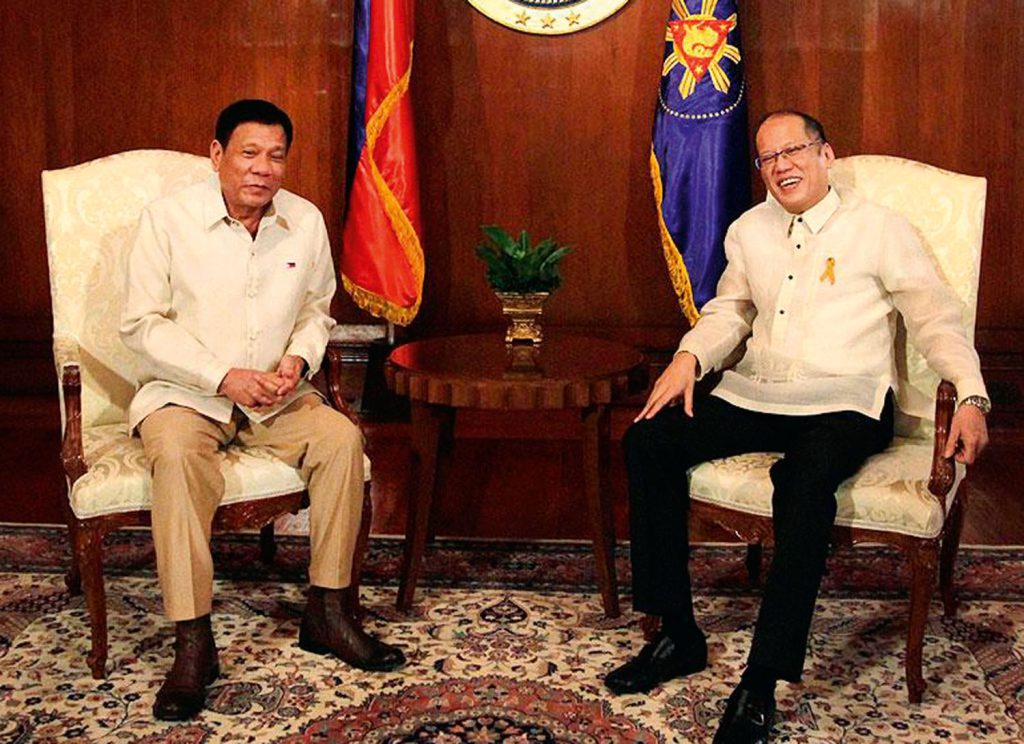
The tendency to generalize is hard to avoid. But we must realize that on the President’s team, there are light-years of difference between, say, a Sonny Dominguez and a Mocha Uson. You simply can’t throw them in the same bin. By the same token, who are really the so-called “dilawans”? Pres. Noynoy Aquino, Vice-President Leni Robredo, Sen. Mar Roxas and their teams aside, can you really say that anyone is a diehard dilawan, just because they oppose Duterte? In fact, the real problem of the opposition is that it has no compelling figure to unite behind. VP Leni is more interested in building low-income housing than making a political stand, and Aquino and Roxas are politically silent, and apparently, happily retired.
We need to discuss issues, and we can’t, if our explanations are, simply, “because they are Dutertards” or “because they are dilawan.” Before we say anything, anything at all, we must listen. And then, when it is time to say something, we must ask ourselves two things: 1) Is this true? And 2) does it add value to the discussion?
Ultimately, we have to realize, even without the whole philosophical underpinnings, that each of us has our own truth. There are many possible truths, and none of them, in the end, are absolute. AD
